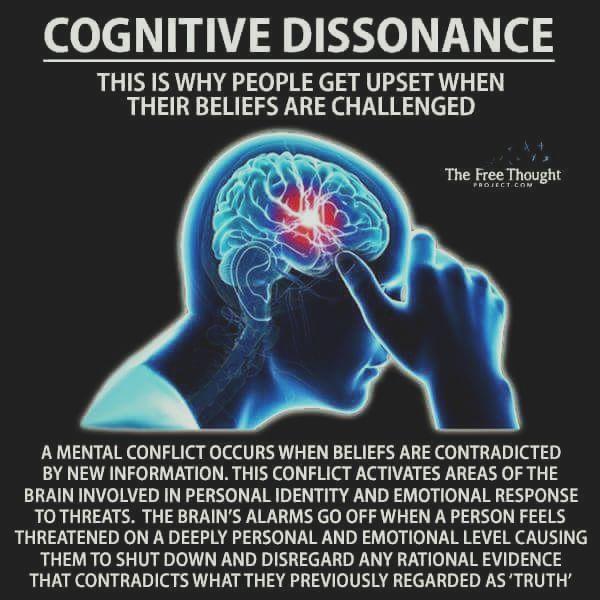COGNITIVE DISSONANCE: THE HIDDEN PSYCHOLOGICAL CAUSE OF STRESS AND RELATIONSHIP CONTRARY
COGNITIVE DISSONANCE: THE HIDDEN PSYCHOLOGICAL CAUSE OF STRESS AND RELATIONSHIP CONTRARY
Have you ever felt conflicted about your partner or your relationship? Maybe you love them, but sometimes you don’t like them. Maybe you want to be with them but also want to be alone. Maybe you agree with them on some things but disagree with others.
If you’re in any stage of your life experiencing these feelings, please understand that you are not alone. You are experiencing what is called Cognitive Dissonance, a psychological phenomenon that occurs when we hold two or more contradictory thoughts or beliefs at the same time.
Cognitive dissonance has been proven to be the cause of human discomfort, anxiety, and confusion, which also hugely affects our behaviours and how we make decisions in our relationships.
What Is Cognitive Dissonance?
Cognitive dissonance was first proposed by psychologist Leon Festinger in 1957. He defined it as “the feeling of discomfort that results from holding two conflicting beliefs” (Festinger, 1957).
A very typical example of how cognitive dissonance works can be related to this, if you believe that smoking is bad for your health, but you still smoke, you may experience cognitive dissonance. To reduce this discomfort, you may try to gradually change your behaviour (quit smoking), change your belief (smoking is not that bad), or justify your behaviour (smoking helps me relax).
I feel the need to address this psychological menace that has robbed haunted human thoughtful exorbitant.
Cognitive dissonance can also occur when our actions do not match our self-image or values. For example, if you see yourself as an honest person, but you lie to your partner, you may experience cognitive dissonance. To reduce this discomfort, you may try to change your behaviour (stop lying), change your self-image (I am not always honest), or justify your behaviour (I lied for a good reason).
This psychological menace can also occur when we receive new information that challenges our existing beliefs or expectations. For example, if you believe that your partner is faithful, but you find out that they cheated on you, you may experience cognitive dissonance. To reduce this discomfort, you may try to change your belief (my partner is not faithful), change the information (they did not cheat on me), or justify the information (they cheated on me because of me).
How Does Cognitive Dissonance Affect Our Relationship?
As cognitive dissonance could be psychologically disturbing, it also has positive effects on our relationship. Bear in mind that it causes more negative effects though. On one hand, it can motivate us to grow and learn from our partners and ourselves. It can help us resolve conflicts and improve communication. It can also help us appreciate our partner’s differences and uniqueness.
Looking at things from another angle, cognitive dissonance can cause us to want to shun, avoid or even deny reality. It can make us defensive and resistant to change. It can also make us rationalize or justify our partner’s flaws or mistakes.
Cognitive dissonance can also affect our attraction and commitment to our partner. According to the balance theory of attraction (Heider, 1958), we tend to like people who share our attitudes and beliefs and dislike people who oppose them. Therefore, when we experience cognitive dissonance with our partners, we may feel less attracted and committed to them.
However, according to the investment model of commitment (Rusbult, 1980), we tend to stay in a relationship when we have invested a lot of resources (time, money, emotions) into it and when we perceive few alternatives. Therefore, when we experience cognitive dissonance with our partners, we may feel more committed to them.
Having understood how cognitive dissonance affects our relationship lifestyle, here comes how to cope and survive the menace;
How Can We Cope With Cognitive Dissonance?
Cognitive dissonance is inevitable in any relationship. However, it does not have to be harmful or destructive. Here are some tips on how to cope with cognitive dissonance in a healthy and constructive way:
– Be aware of your thoughts and feelings. Recognize when you are experiencing cognitive dissonance and what triggers it.
– Be open-minded and curious. Try to understand your partner’s perspective and why they think or act differently from you.
– Be respectful and empathetic. Do not judge or criticize your partner for having different beliefs or behaviours from you.
– Be honest and authentic. Do not lie or hide your true thoughts or feelings from your partner.
– Be flexible and adaptable. Be willing to change your behaviour or belief if it is harmful or irrational.
– Be supportive and cooperative. Work together with your partner to find a solution or compromise that satisfies both of you.
